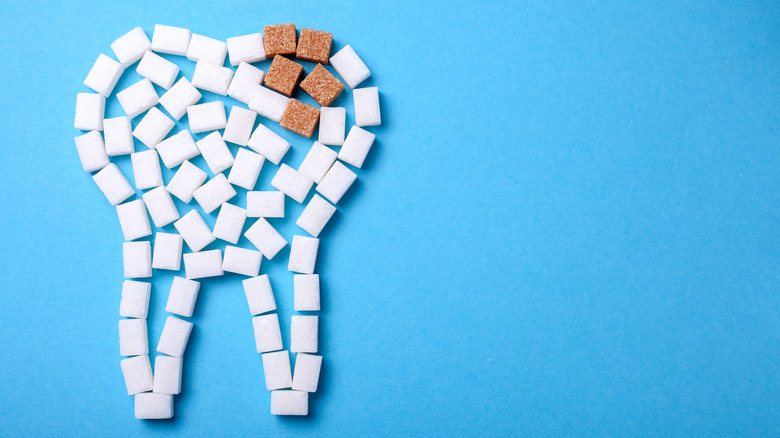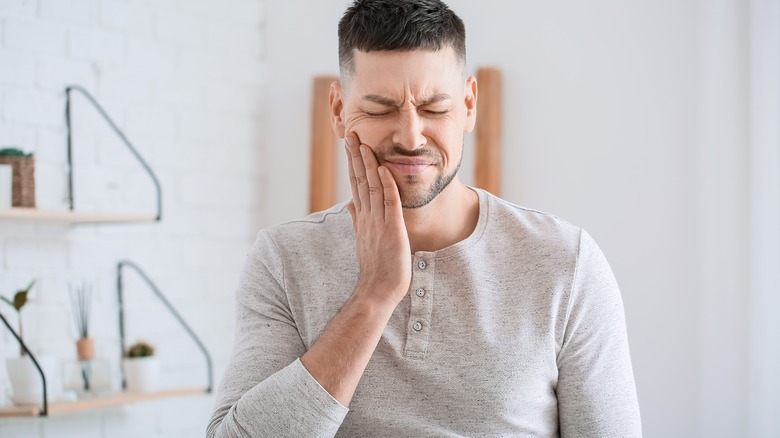Is Tooth Decay Contagious?
Tooth decay is when the surface of your tooth, or enamel, is damaged from everyday bacteria, or the buildup of plaque. According to MedlinePlus, tooth decay can lead to cavities, also known as caries, or the small holes or openings left behind on teeth when tooth decay is left untreated. Tooth decay is common among children, teens, and adults, but can even affect infants. When tooth decay and cavities aren't treated, you put yourself at risk of infection, pain, and even tooth loss.
Symptoms of tooth decay can range from pain and sensitivity to visible marks on the teeth in the form of cavities. Mayo Clinic reports some cavities may not leave behind any symptoms, but over time, a cavity will often become painful when eating or drinking, and can stain the teeth with brown, black, or white spots. As a cavity gets bigger, cavity symptoms can become worse. Depending on how far along a cavity is and the location, signs and symptoms can vary person-to-person.
According to Healthline, tooth decay is caused by the acid formed when bacteria and the sugars from food and drinks mix together. This acid essentially attacks the tooth's enamel by breaking down the precious minerals that keep teeth strong.
How tooth decay spreads to others
Many people probably don't think of tooth decay as being contagious, but this can actually depend on a couple of factors, such as oral hygiene or close contact. In fact, cavities, or tooth decay, are contagious, reports Sydney Park Dental. For example, kissing someone who has a cavity or poor oral hygiene can result in a cavity or tooth decay in your own mouth. This is because the bacteria found in saliva is passed back and forth, meaning you can transmit your bacteria to someone else.
Germs can spread beyond close contact, and can pass through the sharing of utensils, food, and more. According to Tompkins Dental, infants and children are the most vulnerable to cavity-causing bacteria, but there are steps you can take to minimize the spread. Brush your teeth at least twice a day and floss regularly, drink plenty of water, rinse your mouth, and avoid sharing food and utensils to help prevent tooth decay. Plus, don't forget to see your dentist often to keep your mouth healthy and fresh.


